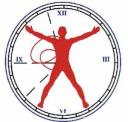Know Your Employee’s Chronotype
Sunday, May 24th, 2009The time of day can strongly impact cognitive performance.
 There has been a flurry of scientific studies into how our biological clocks and circadian rhythms work. Most of it has to do with cell science, physiology and chronobiology but some is trickling up to the psychological-level and is therefore of interest to cognitive designers.
There has been a flurry of scientific studies into how our biological clocks and circadian rhythms work. Most of it has to do with cell science, physiology and chronobiology but some is trickling up to the psychological-level and is therefore of interest to cognitive designers.
Most relevant to cognitive design is the idea of a chronotype where our functioning is optimal depending on the time of day. We are a morning person (lark), night person (owl) or are indifferent. Chronotype correlates to being vigiliance, creative, able to absorb new information and other aspects of cognitive performance.
An excellent article, A Time to Think: Circadian rhythms in Human Cognition, rigorously reviews the time-of-day effects on 20+ attentional, memory and executive functions. These 20+ cognitive processes sweep in most of what counts for knowledge work in organizations today.
So the next time you are designing a policy, program or process aimed at improving knowledge work, be sure to consider the chronotype of the employees you are designing for.